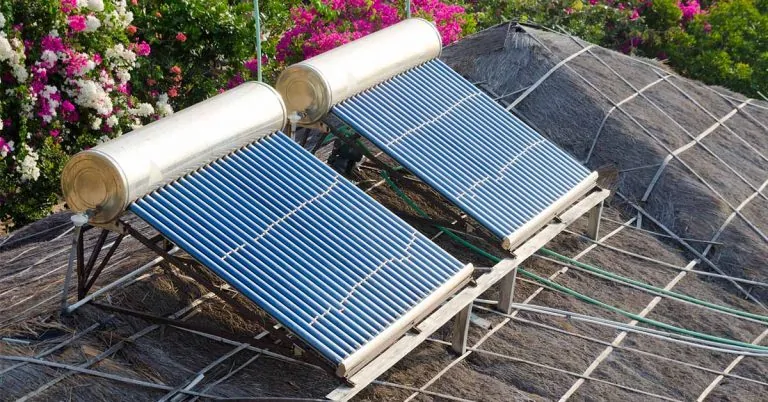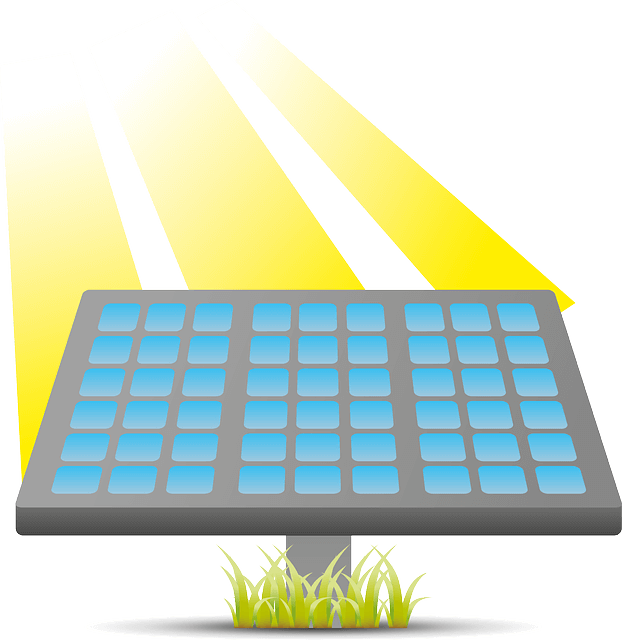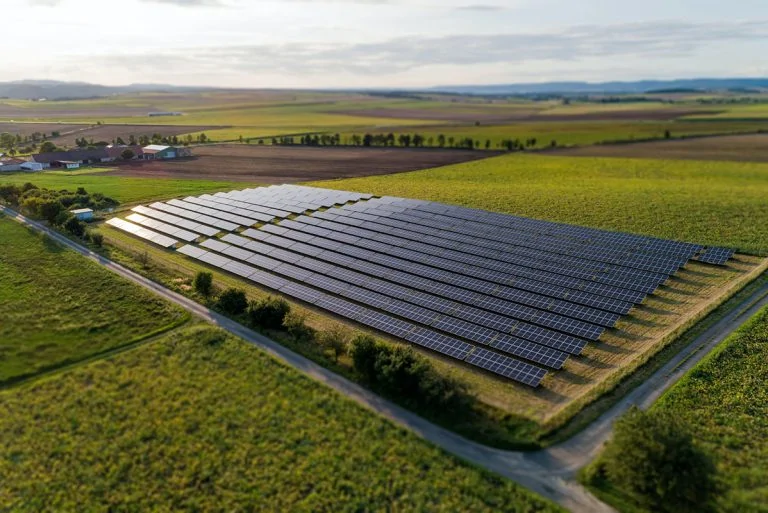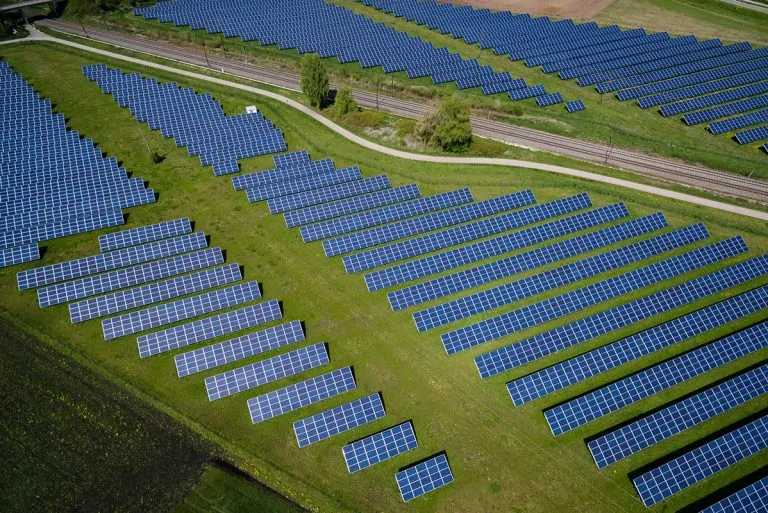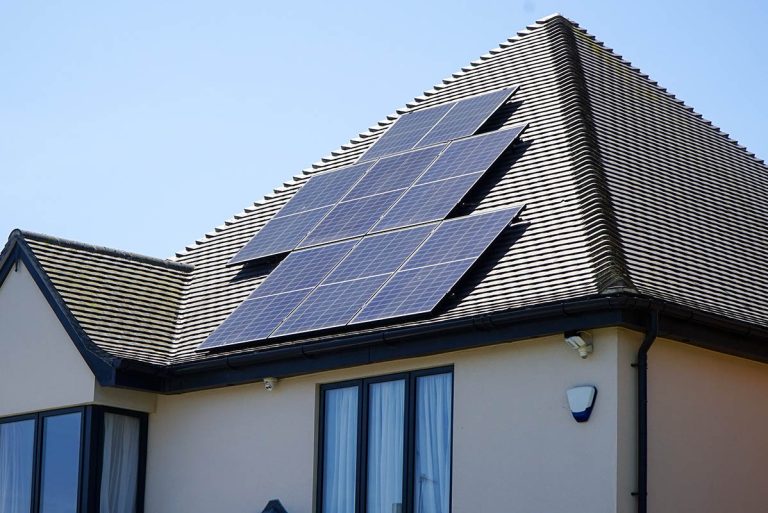Solar water heaters are an excellent way to heat water without using grid electricity or putting extra strain on your solar energy system. They also have the benefits of being simple to use, relatively low maintenance, and easy to install.
Solar water heaters are also remarkably versatile, allowing you to heat water for your household, an outdoor shower, or a swimming pool.
We recommend the Misol Solar Collector as the best option for most people who want to utilize the unlimited eco-friendly power of the sun to supplement your water heating
We’ve also gathered together five of the best models we’ve found, and reviewed them for you to help you decide.
5 Best solar water heaters
Unlike our usual reviews, we haven’t broken these down by each model’s outstanding factors. We’ve also not chosen one as our “top pick.”
Given the scarcity of good solar water heaters on the market, we’ve instead chosen five of the best and broken down why you should consider buying them.
1. Best Overall – MISOL Solar Collector of Solar Hot Water Heater
The MISOL Solar Collector is what is known as a ‘passive solar collector.’
Rather than drawing energy from a solar panel and converting it into electricity that is used to heat the water, a passive system uses the sun’s direct heat.
It does this through a series of vacuum tubes. The vacuum tubes are filled with water and exposed to the sun. The absence of air in the tube, combined with a reflective rear coating, and a layer of insulation, captures and amplifies the heat of the sun in a very efficient manner.
The water is held in copper pipes within the tube and passively absorbs the captured heat. Each pipe is fitted with an aluminum nitride heat transfer strip to make this process as quick and efficient as possible.
The MISOL Solar Collector has ten vacuum glass tubes set in an aluminum alloy shell and filled with a 1.8mm thickness insulating layer. The once caveat to this system is that it does require you to buy a pump in order to move water in and out of it.
What we like:
- Passive generation – The MISOL Solar Collector doesn’t require electricity, making it simple and easy to use.
- Cost-efficient – Once installed, the solar collector produces hot water for no ongoing cost.
- Durable and weather-resistant frame – The outer shell of the solar collector is made from corrosion-resistant aluminum and dust-proof EPDM rubber fittings.
What we don’t like:
- Fragile – Understandably, the glass tubes of the solar collector are not as durable as the rest of the frame.
- Self-assembly – Because of the fragile nature of the glass tubes, the solar collector is shipped unassembled.
Simple and efficient, the MISOL Solar Collector provides hot water without the need for any oversight and is a space and cost-efficient way to heat water.
2. Sunbank 40 Gallon Solar Water Heater
The 40-gallon Sunbank solar water heater represents an affordable first step on the path to energy independence.
The system is designed to provide hot water for a household of one to three people and is a remarkably efficient collection system.
The entire system comes with a ten-year warranty and is the only collector of its type to be certified and eligible for the 30% Federal Tax Credit and state and local incentives.
Using a vacuum tube passive collector, the Sunbank is able to absorb around 92%-96% of the solar radiation it is exposed to. To put that in context, a solar photovoltaic (PV) panel generally only converts around 15% to 20% of solar energy into electricity.
Unlike the MISOL Solar Collector, the Sunbank is a pressurized system. As with a standard electric or gas water heater, the Sunbank makes use of municipal or well pressure to move water into and out of the tank.
What this means is that when you turn on your hot water tap, cold water is pushed into the heater, forcing the hot water out into your pipes. Because it uses municipal pressure, the Sunbank has no glycol, pumps, or any moving parts at all, making it very low maintenance.
What we like:
- Thermally efficient – The Sunbank absorbs around 92%-96% of the solar radiation it is exposed to.
- No moving parts – Because it doesn’t need a pump, the Sunbank is remarkably low maintenance.
- Pressurized system – Because it uses municipal or well pressure, you don’t need an external pump for the Sunbank to work.
What we don’t like:
- Fragile – As with the MISOL, the Sunbank’s weakest point is its glass vacuum tubes.
- Compatibility issues – Because it is a pressurized system, the Sunbank may not be compatible with all household water systems.
Highly efficient and low maintenance, the Sunbank 40 Gallon Solar Water Heater is an easy to use and effective way to turn sunlight into hot water.
3. Sunbank 80 Gallon Solar Water Heater
If the Sunbank 40 gallon solar water heater works for a family of one to three people, then the 80-gallon system is for households with higher water heating demand.
Essentially the same system, just enlarged, the Sunbank 80 Gallon Solar Water Heater is just as efficient, just as low maintenance, comes with the same 10-year collector warranty, and is also Solar Rating and Certification Corporation certified.
4. Sunbank Solar Water Heater Flat Plate Solar Collector
Unlike the vacuum tube systems we’ve looked at so far, the Sunbank Flat Plate Solar Collector uses a large flat sheet of high-strength tempered glass to absorb the heat of the sun. The glass is coated in a highly efficient selective absorber coating to maximize the heat absorbed.
As with other Sunbank solar collectors, the Sunbank Flat Plate Solar Collector is eligible for the 30% federal tax credit as well as local incentives and rebates for solar water heaters.
The system can be mounted directly to solar rail on a pitched roof or can be mounted either horizontally or vertically using one of Sunbanks fitting brackets.
Water is injected and removed from the system using four ¾-inch copper ports coming from the header and footer. The ports are compatible with compression or push fittings.
The entire system is covered by Sunbank’s 10-year warranty on manufacturer’s defects.
What we like:
- Increased durability – The use of high-strength tempered glass makes this flat panel system more durable than vacuum tube systems.
- SRCC Certified – As with the other Sunbank products, the Flat Plate Solar Collector is eligible for the 30% federal tax credit as well as local incentives and rebates for solar water heaters.
- Multiple fittings – The fittings on the Flat Plate Solar Collector are compatible with compression or push fittings.
What we don’t like:
- Fittings not included – The attachments that fit the Flat Plate Solar Collector to your roof are sold separately.
- Rail fitting only – Unlike the vacuum tube systems, the Flat Plate Solar Collector is not free-standing.
If you’re interested in a solar water heater, but are put off by the fragility of a vacuum tube system, the Flat Plate Solar Collector is an excellent alternative.
5. SunHeater Pool Heating System
So far, we’ve mostly reviewed solar water heaters for domestic hot water use. However, one of the primary uses of a solar water heater is to heat pool water, so it makes sense to include a pool heating system in our review.
The SunHeater Pool Heating System uses a tube-web-tube design, made of durable polypropylene, to efficiently capture the sun’s heat and transfer it to your pool water. The system can raise the water temperature in your pool by as much as 6-10℉ and extend your pool season for up to a month.
The heater itself is made from two 2-foot by 20-foot panels and is designed for use with pools up to 31-feet round or 18-feet by 36-feet.
The heater can be used with your existing filtration system and comes with all the fittings needed, including four end caps, two elbows for flex hose connection, six stainless steel hose clamps, a roll of Teflon tape, and rubber connector hoses.
The flexible polypropylene design can expand and contract to accommodate different temperatures, be rolled up for storage, and it can be curved around the side of your pool.
What we like:
- Flexible and durable – The polypropylene construction means the SunHeater is durable enough for constant outdoor use.
- Easy to store – Once you’re done with the SunHeater, it can simply be rolled away for storage.
- Easy to fit – The Sunheater comes with all the required fittings and can be used with your existing filtration system.
What we don’t like:
- Pool only – The SunHeater is designed to heat pools and can’t be used to heat hot water for domestic use.
- Not for colder climates – Some reviewers have pointed out that the SunHeater is much less efficient in colder climates because of its lack of insulation.
If you live in a warmer climate and want to extend the amount of time you can spend in the pool, then the SunHeater Pool Heating System is an excellent and easy-to-use solution.
Solar water heater buying guide
While solar water heaters are fairly simple systems to use and install, there are some factors you need to consider when choosing one for your home.
What are the different types of solar water heaters?
There are broadly three different types of solar water heaters:
- Vacuum tube heaters – These heaters use insulated vacuum tubes to trap the sun’s heat and use it to heat water held in copper pipes within the vacuum tubes.
- Glass panel heaters – These systems use a flat tempered glass panel to capture the sun’s heat and use it to heat water stores in a tank behind the panel.
- Pool heaters – Normally made of plastic or rubber, these systems are designed to increase the temperature of your pool water by a few degrees, rather than produce hot water for domestic use.
What are solar water heaters used for?
As a rule, vacuum tube heaters and glass panel heaters are used to heat water in the same way that an electric or gas water heater would in the home.
Pool heaters are used to mildly increase the heat of your pool water, so you can get more use from it as the ambient temperature drops.
How important is capacity when it comes to buying a solar water heater?
Capacity is critical when it comes to picking the right water heater for your home. If you are using it for domestic use, you’ll need to have enough hot water passing through the system to accommodate your daily needs.
Even the most efficient solar water heaters will not heat water as fast as a gas or electric heater, so having more capacity, and therefore larger reserves of hot water, is always a good idea.
In the case of vacuum tube heaters and glass panel heaters, it’s important to remember that they can be mounted in sequence. This means you can have a series of smaller heaters instead of just one large one.
For pool heaters, you need to check that the heater in question is rated to work with the size of your pool.
What features should I look for in a solar water heater?
The most important features to look for in a solar water heater are the way it moves water in and out of the system and its fitting method.
For example, the MISOL Solar Collector needs to be connected to a pump in order to move water in and out of the system. The Sunbank, on the other hand, uses municipal pressure to move water around.
You’ll need to select a system that is compatible with your existing setup.
How you fit your solar water heater is the next most important consideration. Most vacuum tube systems can be free-standing. Whereas, the glass panel systems often have to be mounted on a roof in order to work efficiently.
What are the advantages and disadvantages of using a solar water heater?
The primary advantage of using a solar water heater is that you get technically unlimited free hot water at no cost.
The primary disadvantage is that solar water heaters will not heat water as quickly as a gas or electric system and they are far more dependent on the weather than other heaters.
Solar Water Heater FAQs
To give you all the information you need to decide on the right solar water heater for your home, we’ve gathered together some of the most frequently asked questions about solar water heaters and answered them for you.
How do solar water heaters work?
Solar water heaters work by capturing and storing the heat of the sun and then transferring it to the water held in their system.
How do I use a solar water heater?
Solar water heaters are remarkably easy to use. Once you’ve got yours set up, you just need to install it in a place with good access to sunlight and let it do its thing.
What is the best way to site my solar water heater?
This depends on your type of heater.
- Glass panel heaters are often mounted on your roof, the same way solar panels are.
- Free-standing vacuum tube models can be placed anywhere there is good solar exposure.
- Pool heaters are normally designed to be used next to your pool.
Are solar water heaters safe?
Yes. Most solar heaters have no moving parts and do not use electricity. The only danger is the heat of the water they produce, making them about as dangerous as a hot tap.
Are solar water heaters environmentally friendly?
Yes, in so much as they don’t use grid generated electricity to run. However, it’s always important to factor in the environmental cost of their contraction.
That being said, they are largely as environmentally friendly as using solar panels or wind turbines and DC hot water heaters, just a lot simpler to use.
Is a solar water heater worth it?
This really depends on your personal circumstances.
If you live in an area that has good solar exposure, offers an SRCC Certified solar rebate, and you can afford the upfront costs of buying enough heaters to suit your hot water usage, then yes, solar water heaters can reduce both your bills and your reliance on grid energy.
Free environmentally-friendly hot water
Solar hot water heaters are easy to use, easy to install, and convert the heat of the sun into free, environmentally-friendly hot water.
They aren’t without their drawbacks, but if you live in a hotter climate with good solar exposure, they can be an excellent alternative to grid-powered water heating.
Looking for more ways to make your water usage eco-friendly? Learn how you can water your garden or fill the pool using these best solar-powered water pumps.
